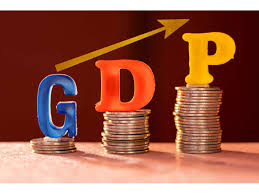The IMF is one major institution that controls the economy with financial assistance, and the US bank participates in power production, oil refining, and distribution activities.
Functions of the Global Economy
Capital flow:
Investors purchase bonds, stocks, and other financial assets from different countries, influencing global financial markets.
Businesses directly invest in assets and production capabilities in other countries, and foreign direct investment is a major driver of capital flows, contributing to economic growth and development in emerging markets.
Exchange of Goods and Services:
The global economy helps countries to improve their products, raising productivity and efficiency. Import and export are easily possible in many underdeveloped countries increase their income by exporting, they import machinery and export primary goods.
The exchange of goods and services between countries accounts for a significant portion of global economic activity. Trade is governed by international agreements, tariffs, and trade blocs (e.g., the EU, NAFTA, ASEAN).
Technology and Information Transfer:
New technology, research, and innovation transfer from one country to another, and information technology facilitates global business operations, e-commerce, and communication.
The rapid spread of technology across borders influences productivity, trade, and even societal norms. Global supply chains depend on technological advancements, particularly in fields like manufacturing, IT, and logistics.
Resolve disputes:
The World Trade Organization provides a framework for negotiating trade agreements and resolving disputes, ensuring smooth international trade operations.
Institutions like the G20 work to ensure the stability of the global financial system, especially during times of crisis.
Labor Mobility:
The movement of workers across borders in search of better employment opportunities or in response to labor shortages. This can involve both skilled professionals (e.g., doctors, engineers) and low-wage labor (e.g., agriculture, hospitality).
Advantages of the Global Economy
There are a lot of benefits of the global economy, such as;
Improve Economic Scale:
Due to the global economy, some countries increase their production, which leads to low costs and low prices for the customers. Countries benefit from greater demand for their goods and services.
When countries participate in global trade activities, they are less affected by economic downturns because they are dependent on foreign markets.
Improve Efficiency and Resource Allocation:
Due to competition in foreign markets, countries use their resources efficiently to become specialized in producing goods and services.
The global economy also allows companies to optimize production, sourcing materials from regions where they are cheaper and easily available.
Technology and Innovation:
The transfer of technology and innovation is possible through the interaction between countries, which benefits countries that may not have developed them.
International cooperation in research and development helps in addressing global challenges like health, education, and climate change.
Beneficial for Investment:
The global economy helps countries attract short-term and long-term investment. Investment improves the economy of developing countries. Globalization allows businesses to access international funding through stock markets, loans, and venture capital, supporting business expansion. It is also helpful for the poor countries.
Improve Standard of Living:
The global economy leads to the creation of jobs in different parts of the world, especially in developing countries where large factories are established.
Increasing job opportunities helps to lift millions of people out of poverty, especially in underdeveloped countries. Economic growth and access to foreign markets can improve the living standards of people.
Importance of the Global Economy
The increase in the world population has led to emerging markets growing economically, making them one of the primary engines of world economic growth. The global economy refers to possible transactions between countries. Different countries need different things, some need food, weapons, oil, grains, etc. Through the global economy, we easily get what we want.
Effects on the Global Economy
The global economy is the exchange of products and services between countries. The purpose of international trade is similar to that of trading within a country, but international trade faces some restrictions.
Restrictions on the import and export of goods and services in many countries have negative effects on the economies of those countries. Restrictions are in the form of trade tariffs(taxes on imports) and trade quotas(limitations on the number of products that can be imported into a country).
Another effect of the economics of scale refers to proportionate savings in costs gained by an increased level of production. Manufacturers in these countries can focus all their efforts on the specialized production of those goods instead of spending additional money on the production of various types of goods.
The global economy is vast, dynamic, and highly interconnected. While it offers immense opportunities for growth, investment, and innovation, it also presents risks that require careful management by governments, businesses, and financial institutions. Future trends, especially related to technology and sustainability, are likely to play a major role in shaping the direction of global economic development.
In other words, we can say that the global economy is a way through which national and regional economies, societies, and cultures have become integrated with the global network of trade, communication, immigration, and transportation.






.jpg)


0 Comments